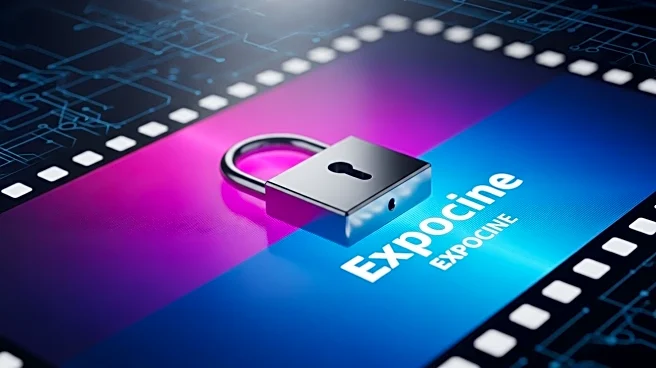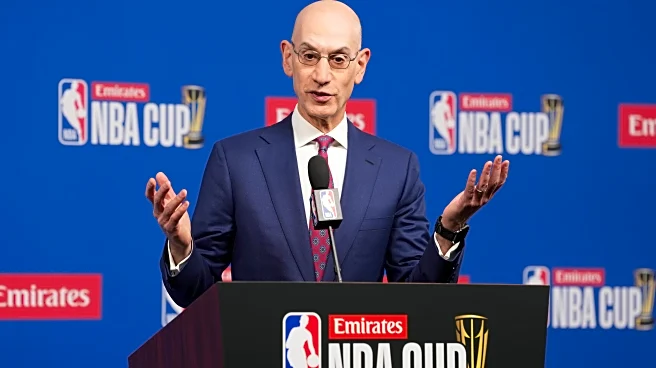What's Happening?
During the Expocine motion picture convention in São Paulo, representatives from the Brazilian government and film industry are convening to discuss strategies to combat digital piracy. The panel, titled 'Cutting the Signal: the Silent War against Digital Piracy,' includes officials from Brazil's National Cinema Agency (Ancine) and National Telecommunications Agency (Anatel), alongside industry leaders like Andressa Pappas from the Motion Picture Association (MPA) in Brazil. Piracy poses significant economic challenges, with estimates indicating a financial impact of R$287 billion ($52.1 billion) on Brazil's economy. The panel aims to address various forms of piracy, including illegal streaming services and unauthorized IPTV platforms, which are prevalent in Brazil.
Why It's Important?
Digital piracy significantly affects the film and TV industry in Brazil, disrupting revenue streams essential for content creation and employment. The collaboration between Ancine and Anatel represents a proactive approach to mitigate these losses by blocking websites and apps distributing pirated content. This initiative highlights Brazil's commitment to protecting intellectual property rights and fostering a sustainable entertainment industry. The economic implications are vast, with piracy contributing to substantial annual losses in the pay TV sector alone. Effective measures could bolster the industry, ensuring continued investment and growth.
What's Next?
The effectiveness of the Ancine-Anatel cooperation remains to be seen, as industry leaders like Jack Silva express skepticism about the current measures. Future actions may involve targeting individuals advertising pirated content on social media platforms. The ongoing dialogue at Expocine could lead to more comprehensive strategies, including enhanced law enforcement collaboration and public awareness campaigns. Stakeholders will likely monitor the impact of these initiatives closely, adjusting tactics as necessary to curb piracy effectively.










